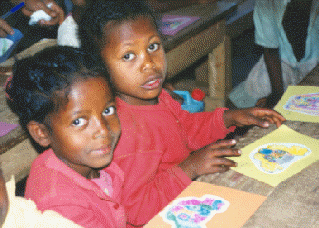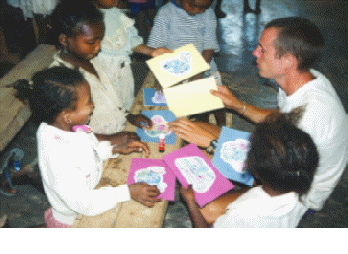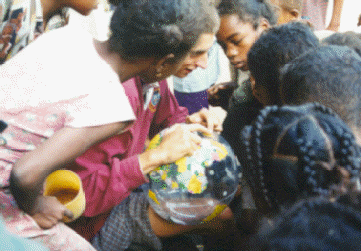|
|
|
Education
An education project was deemed essential to enhance our involment and to create the best possible relationship with the local community of Ifotaka village, since we were the visitors to their homeland. Therefore, in an attempt at integration, to appear slightly more normaland to inform as many of the community as possible as to why we had travelled all the way from the UK to Madagascar to watch the lemurs that they presume are ubiquitous, we spent the final phase of the expedition living in the village. during that time I organised a visit to both the village schools for a day and to perform a short sketch as more of a visual representation of our work. The latter activity successfully involved those children (that are sadly in the majority) who do not attend school and also many other village members.
A further reason for investing our time in interacting with the men, women and children of the village , was our interest in raising the awreness of lemurs as a resource. The locals do not realise that they cohabit with a rare and endemic and endangered species. Consequently, the necessity for an environmental education project was again reinforced. Visitng the primary schools involved targeting the younger children in delivering our concern for lemur conservation using pictorial representations of lemurs that the children could keep, stickers, a world map and conveying a verbal message through a translator to help the plight of the lemurs. Our aim was to leave them with an image that would trigger memories of us and remind them why we had come to visit their village.
 |
 |
 |
 |
The education programme
| Index | Population | Diet | Habitat | Behaviour | Plants | Ethnobotany | Anthropology | Education | Medical Report | Acknowledgements | Gallery | Bibliography |